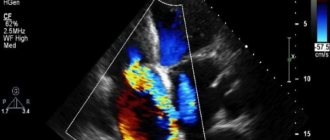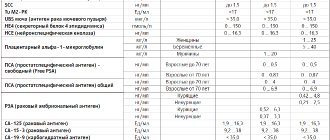How long do ECG results last and for what diseases is repeated diagnostics required?
Electrocardiography (ECG), being the most informative, accessible and harmless method for studying the activity of the heart, is one of the most popular procedures of the 21st century. This is due to the excessive prevalence of cardiac diseases among all age categories of people.
As soon as the patient, during a routine examination, receives the results of the procedure in the form of an oblong paper tape depicting graphs and digital indicators, he needs to know how long the ECG is valid. The answer to this question is very important, since the validity period of the data obtained often plays an important role when meeting with a doctor caused by various life circumstances.
In a normal situation, the results with the attached transcript are good for about two weeks, according to some sources, up to 4 weeks. If the ECG algorithm was correct and the final indicators were positive, most likely, additional sessions will not be prescribed. Moreover, with stable data, a person needs to visit a cardiologist’s office on average once a year.
Things are somewhat different when preparing for a planned surgical intervention. Non-urgent surgery always requires not only passing a range of tests, but also taking readings of the rhythm of the heart muscle. Since the ECG results in this case must be as current as possible, the electrocardiogram should be obtained as close as possible to the date of the appointment of the medical procedure. Such a doctor’s conclusion is valid for only 2–3 days.
In order to determine how long a cardiogram is valid in a particular case, first of all, you need to consult a specialist, he will be able to give a more reliable answer. When a person is urgently admitted to a medical facility, and the staff simply does not have time to conduct an ECG immediately before the operation, the patient is immediately sent to the operating room.
If the relatives brought an outpatient card on time, which contains relatively “outdated” ECG results, they will be taken as the basis for the upcoming surgical intervention. Information about the victim’s cardiac activity, which is available to loved ones themselves, may also be important. In some cases, family history plays a critical role in developing a plan of action.
A properly established relationship between a doctor and his patient will minimize the occurrence of misunderstandings and medical “blank spots” that can aggravate the general condition of a person during his subsequent visits to the hospital caused by any ailments.
Shelf life of daily ECG monitoring
In addition to the standard medical examination, which should be carried out every year, there are a number of other circumstances that require a cardiogram. This list includes:
- serious infectious diseases;
- heartache;
- dyspnea;
- arrhythmia;
- pregnancy;
- excess weight.
Certain occupational risks, advanced age or bad habits also become indications for regular ECG testing. Men over 40 should pay special attention to the heart.
To ensure that the study result reflects the condition of the heart muscle as accurately as possible, it is recommended to adhere to the following recommendations:
- Limit liquid intake the night before;
- do not eat food two hours before taking an electrocardiogram;
- exclude physical activity;
- do not drink coffee or tea the day before;
- Do not apply cream or oil to the skin.
It is best to come to the office in advance and sit for 20 minutes to bring your breathing back to normal. For your own comfort, you should wear simple, easily removable clothing.
When discussing the ECG procedure with your doctor, specify the date you need the latest results. This will allow you to set a date for the study so that the expiration date of the new ECG meets the needs of the patient. It is imperative to report any existing heart disease.
Name of work and professions
Periodicity
examinations
Participation of medical specialists1,2,3
Laboratory and functional studies1,2
14. Work in food industry organizations, dairy and distribution points, at bases and warehouses of food products, where there is contact with food products during their production, storage, sale, including work on sanitary processing and repair of inventory, equipment, as well as work where there is contact with food products when transporting them on all types of transport
Chest X-ray
Blood test for syphilis
Tests for carriage of intestinal pathogens and serological examination for typhoid fever upon entry to work and subsequently - according to epidemiological indications
Tests for helminthiases upon entry to work and thereafter - at least once a year or according to epidemiological indications
A swab from the throat and nose for the presence of pathogenic staphylococcus upon entry to work,
in the future - according to medical and epidemiological indications
15. Work in catering organizations, trade, buffets, catering units, including in transport
How long do ECG results last and for what diseases is repeated diagnosis required? Electrocardiography (ECG), being the most informative, accessible and harmless method for studying heart activity, is one of the most popular procedures of the 21st century. This is due to the excessive prevalence of cardiac diseases among all age categories of people.
As soon as the patient, during a routine examination, receives the results of the procedure in the form of an oblong paper tape depicting graphs and digital indicators, he needs to know how long the ECG is valid. The answer to this question is very important, since the validity period of the data obtained often plays an important role when meeting with a doctor caused by various life circumstances.
In a normal situation, the results with the attached transcript are good for about two weeks, according to some sources, up to 4 weeks. If the ECG algorithm was correct and the final indicators were positive, most likely, additional sessions will not be prescribed. Moreover, with stable data, a person needs to visit a cardiologist’s office on average once a year.
Things are somewhat different when preparing for a planned surgical intervention. Non-urgent surgery always requires not only passing a range of tests, but also taking readings of the rhythm of the heart muscle. Since the ECG results in this case must be as current as possible, the electrocardiogram should be obtained as close as possible to the date of the appointment of the medical procedure.
Such a doctor’s conclusion is valid for only 2–3 days. In order to determine how long a cardiogram is valid in a particular case, first of all, you need to consult a specialist, he will be able to give a more reliable answer. When a person is urgently admitted to a medical facility, and the staff simply does not have time to conduct an ECG immediately before the operation, the patient is immediately sent to the operating room.
If the relatives brought an outpatient card on time, which contains relatively “outdated” ECG results, they will be taken as the basis for the upcoming surgical intervention. Information about the victim’s cardiac activity, which is available to loved ones themselves, may also be important.
In some cases, family history plays a decisive role in developing a plan of action. A properly established relationship between a doctor and his patient will minimize the occurrence of misunderstandings and medical “blank spots” that can aggravate the general condition of a person during his subsequent visits to the hospital caused by any ailments.
The thing is that previously, a medical report on the driver’s health status did not really lose its significance for 36 months. But recent changes in this area have significantly shortened this period. Current rules By how much? What is the validity period of a certificate from the traffic police to replace a license? In 2016-2017, this document is valid for only 12 months.
This means that if you replace your driver’s license several times a year, there is no need to present a new medical examination. And if you need to re-register your rights later, you will again have to face a commission of the established form. Where can I get it? Where can I get a certificate from the traffic police to replace my license?
However, the validity period of rights obtained without a medical certificate will be the same as the old ones. How to obtain a medical certificate Documents required for passing a medical examination:
- An identification document of a citizen of the Russian Federation, that is, a passport.
- Registration or military ID.
- Nonresidents present a certificate of temporary registration.
- Matte photographs, 2 pcs., made to standard photo size for documents.
- Rights, if you already have them.
- Contact lenses or glasses used by the applicant for examination.
A medical examination can only be carried out in an institution that has received a license and has the technical ability to conduct such examinations and issue appropriate conclusions on them. The traffic police does not have the right to require a person to provide a certificate issued by any specific medical center.
- The certificate is valid for exactly one year from the date of its preparation and signing by the head physician.
- The validity period of the document is not indicated on the form.
- Photos are no longer attached to the certificate, so the production time will speed up the procedure.
- A number of fields where doctors were previously indicated have been removed from the form.
- The driver should be examined by a psychiatrist or narcologist at his place of registration, otherwise the results will not be accepted.
- The new sample certificate form is subject to strict reporting.
- Suspicion of heart disease
- Hypertension or suspected hypertension
- Arrhythmia
- Hypercholesterolemia
- Pain/discomfort in the heart area
- Dyspnea
- Excess weight
- Preparing for surgery
- Pregnancy
- Presence of occupational risks and bad habits
- Chronic stress
- Age over 40
- Past infections
The start of the period when the period of validity of the driver’s medical examination begins is the date of signing of the certificate by the chief physician of the clinic.
Certain occupational risks, advanced age or bad habits also become indications for regular ECG testing. Men over 40 years old should pay special attention to the heart. Taking an ECG is an integral procedure before surgery. In this case, it is important to consider the validity period of the study - for surgical intervention the shelf life is up to several days.
It is best to come to the office in advance and sit for 20 minutes to bring your breathing back to normal. For your own comfort, you should wear simple, easily removable clothing. Important! It is enough that a blouse or sweater can be easily removed, jeans (trousers) can simply be rolled up. When discussing the procedure for taking an ECG with your doctor, specify the date for which you need current results.
An electrocardiogram is mandatory for pregnant women, especially on the eve of childbirth - this allows you to develop a labor management plan and reduce the risks of complications. In this case, it is important to know what the patient’s blood type and Rh factor are, so as not to make a mistake when performing a transfusion. The group is determined by the doctor using a small volume of blood and special equipment. whey
Blood tests, the timing of which influence the reliability of information about the condition and functioning of organs and tissues of the body, allow doctors to diagnose diseases. If blood tests are not carried out on time, the information becomes partially distorted over time, which can lead to an incorrect diagnosis. The validity period of the analysis is 2 weeks.
Carrying out an ECG: indications and important points
In addition to the standard medical examination, which should be carried out every year, there are a number of other circumstances that require a cardiogram. This list includes:
- serious infectious diseases;
- heartache;
- dyspnea;
- arrhythmia;
- pregnancy;
- excess weight.
Certain occupational risks, advanced age or bad habits also become indications for regular ECG testing. Men over 40 should pay special attention to the heart.
Taking an ECG is an integral procedure before surgery. In this case, it is important to consider the validity period of the study - for surgical intervention the shelf life is up to several days.
How to prepare for research?
The purpose of an ECG is a thorough study of the functioning of the heart muscle under normal conditions. Therefore, in order for the ECG results to be objective, a number of simple conditions must be met.
It is recommended to limit liquid intake the evening before. On the day of the procedure, you should get a good night's sleep, refrain from physical activity and refrain from drinking coffee, tea and other drinks that stimulate cardiac activity. The last meal should be no later than 2 hours before the ECG. It is advisable to arrive for the procedure in advance so that you can sit quietly, relax and restore your breathing for 15–20 minutes.
You should also take a shower before the procedure. However, the use of fatty creams and body oils is excluded, as they prevent good contact of the electrodes with the skin and can distort the ECG results.
It is recommended to come to the procedure in comfortable, easily removable clothing.
If you have any questions, ask our specialist! Ask a Question
- the patient is taking blood thinning medications,
- he bruises easily,
- there have been any problems during previous operations and dental procedures with bleeding in the patient or his close relatives.
The purpose of an ECG is a thorough study of the functioning of the heart muscle under normal conditions. Therefore, in order for the ECG results to be objective, a number of simple conditions must be met.
It is recommended to limit liquid intake the evening before. On the day of the procedure, you should get a good night's sleep, refrain from physical activity and refrain from drinking coffee, tea and other drinks that stimulate cardiac activity. The last meal should be no later than 2 hours before the ECG. It is advisable to arrive for the procedure in advance so that you can sit quietly, relax and restore your breathing for 15–20 minutes.
You should also take a shower before the procedure. However, the use of fatty creams and body oils is excluded, as they prevent good contact of the electrodes with the skin and can distort the ECG results.
It is recommended to come to the procedure in comfortable, easily removable clothing.
If you have any questions, ask our specialist! Ask a Question
How is an ECG taken?
The procedure itself is simple, but there are rules, non-compliance with which can negatively affect the result and provide false information. To ensure that the data reflects the true state of affairs, it is recommended:
- come to the procedure in a calm state;
- do not use energy drinks and other stimulants;
- Relax and don’t be nervous while recording.
Important! ECG is performed only in a calm state!
Before the procedure, the person lies down on a couch. The specialist places electrodes on certain points, having previously lubricated the area with a special conductive gel - it simplifies the detection of electrical impulses and makes the result more accurate.
The recording is kept for 10 minutes. It is stored electronically or in paper form. If the study is the patient’s initiative, then the result is delivered on the same day. Upon presentation of the referral, the sheet is sent directly to the attending physician.
This result is valid for two weeks - this period includes the day of the study itself.
Installation of sensors
How long is a medical certificate for a driver's license valid?
Just keep in mind that after paying the fine, a driver’s license will still not be issued, but they will be required to undergo a medical examination in the manner prescribed by law.
https://www.youtube.com/watch?v=NV4bAYe_uBY
Important An expired certificate is a non-existent certificate. This is exactly how it will be considered by law. A driver needs a certificate from a doctor when replacing a driver’s license with a new one, when its terms have expired, or the arrest of the driver’s license has ended. Also when opening a new category, or receiving a driver’s license for the first time.
To obtain this document, you should collect the following package of documents:
- passport of a citizen of the Russian Federation;
- photographs – 2 pcs.;
- military ID/registration (for those liable for military service);
- driver's license (if you need to extend the validity of your medical certificate).
The process itself involves passing a special medical examination at the clinic (to obtain a document of the established form). Next, you should undergo an examination by such specialized specialists as a psychiatrist and a narcologist (at the appropriate dispensaries). After passing these stages, the finished medical certificate is certified by the seal and signature of the head physician of the medical institution where the medical examination was carried out.
The certificate is valid for the period specified in the legislative Order. The form of such a document itself has also been updated and now there is no line in it that would indicate the validity period of the issued document. The form of the form is approved by the same Order of the Ministry of Health of the Russian Federation No. 344n under the number - 003-V/u.
If a medical certificate is provided on the last day of its validity, traffic police officers do not have the right to refuse the submission of the document - it is valid until the end of the last day. Note! All certificates issued on the old form (form No. 083/U-89) are no longer valid as of July 1, 2020. Such certificates were usually issued earlier in the period before the changes occurred on July 1, 2020.
- individual - 1000 - 1500 rubles;
- persons in positions - 2000 - 3000 rubles;
- legal entities and entrepreneurs – 30,000 – 50,000 rubles.
Legislative framework On June 15, 2020, the Ministry of Health signed order No. 344 n, which states the need for a medical examination of drivers and candidates for driving vehicles. The old order No. 831 n dated September 28, 2010 was declared no longer in force. On March 11, 2016, the order was recorded in the Ministry of Justice of the Russian Federation.
The updated rules came into full force on March 26, 2016. One of the criteria for passing driving tests is a completed medical certificate. The new form No. 003 - V/U was approved in accordance with the order of the Ministry of Health and Social Development. New sample forms began to be issued on July 1, 2020.
Periodicity
examinations
Electrocardiogram of a healthy person
I am being reinstated to serve in another region. They gave me a list of tests and extracts that need to be obtained from the clinic at my place of residence before IVC. Actually, I’m interested in the validity period of these tests: Clinical blood test, general urine test, blood for the Wasserman reaction or EDS, blood for HIV and plus ECG at rest and stress with fluorography, everything is clear - 6 months.
How long does an ECG last? The validity of the test results depends on the patient’s health condition. The need for re-diagnosis.
Tests for hypertension: examination for hypertension
The most common test performed in the laboratory is a general urinalysis. In case of kidney disease, the doctor may recommend doing an additional test (urine analysis according to Nechiporenko or sterility test).
Have you been struggling with HYPERTENSION for many years without success? Head of the Institute: “You will be amazed at how easy it is to cure hypertension by taking it every day. High blood pressure is a fairly common problem, especially among women and men over 40 years of age. As a disease, high blood pressure manifests itself slowly.
Symptoms begin with weakness, dizziness, sleep disturbances, fatigue, numbness of the fingers, hot flashes. Our readers successfully use ReCardio to treat hypertension. Seeing how popular this product is, we decided to bring it to your attention. Read more here... This stage continues for several years in a row, but the patient can ignore it, attributing the symptoms to banal overwork.
- myocardial infarction;
- stroke;
- lethal outcome.
Today, hypertension is diagnosed in many patients, but, unfortunately, it is not taken seriously. As medical statistics show, approximately 40% of people suffer from high blood pressure and this number is growing steadily.
It happens that pressure changes occur in an absolutely healthy person. However, in this case, blood pressure does not reach crisis levels and does not pose any danger to health and life. But it still doesn’t hurt to get tested to rule out problems. Very often, the cause of high blood pressure is work that requires constant concentration and emotional stress. People also suffer from hypertension:
- who previously suffered a concussion;
- move little;
- have bad habits.
If the patient leads a sedentary lifestyle, over time he is diagnosed with atherosclerosis. With severe vascular spasms, blood access to vital organs is disrupted. When there are plaques on the walls of blood vessels, a strong spasm can provoke a heart attack or stroke. Therefore, you need to get tested even to prevent the disease.
In women, the causes of problems with blood pressure will be hormonal changes in the body during menopause. Other prerequisites for high blood pressure will be the consumption of excessively large amounts of kitchen salt, a morbid addiction to alcoholic beverages, caffeine, and smoking. Excess body weight plays a significant role in the formation of pathology. The more extra pounds you carry, the higher your risk of hypertension.
Clinical and laboratory examination of the body is used to identify hypertension. First, you need to have an initial appointment with a therapist, a cardiologist, who will conduct a visual examination of the patient, study documentation, and medical history. After this, you need to take tests, as they will help confirm hypertension or identify other causes of high blood pressure.
- structural abnormalities;
- valve changes;
- developmental defects.
These biochemical indicators are necessary to determine the exact cause of high blood pressure, the degree of target organ damage, monitor the safety of medications, and monitor the dynamics of the disease.
With an increase in blood pressure, the contractile functions of the heart on the ECG will be visible only indirectly. To carry out the procedure, the patient must undress to the waist and expose his legs. Ideally, in case of hypertension, the study is carried out no earlier than 2 hours after eating and after 15 minutes of rest.
The electrocardiogram is recorded with the patient in a horizontal position. To obtain data, wipes soaked in water are placed on the lower part of the legs and forearms, and metal electrode plates are placed on top of them. The places where the electrodes are applied are first degreased with alcohol.
This procedure helps to improve the quality of the ECG and reduce the number of inductive currents. The examination is carried out during quiet breathing, and at least 4 cardiac cycles are noted in each branch. In case of hypertension, electrodes are applied in a certain order, and each of them has its own color:
- red – right hand;
- yellow – left hand;
- green – left leg;
- black – right leg.
The ECG consists of intervals and waves, that is, the spaces between the teeth. While deciphering the cardiogram of a hypertensive patient, the doctor will evaluate the shape, size of each of the teeth, and intervals. It will be necessary to establish stability and repeatability. It should be said that this examination for high blood pressure has a number of disadvantages.
Thus, diagnostics are short-term and are not able to detect pathologies with an unstable cardiographic picture. When the disorder is temporary and does not make itself felt when recording an ECG, it will not be possible to detect it. An electrocardiogram will not display cardiac hemodynamics, will not show the presence of a heart murmur, or developmental defects.
To diagnose these pathological conditions, you will need to undergo an additional ultrasound examination. Despite the high value, the assessment of data must be carried out with mandatory consideration of all clinical indicators, since different pathological processes can have many similar changes.
Despite the statement that there is no need to prepare for electrocardiography, experienced doctors strongly recommend taking the procedure seriously. The essence of the manipulation is to assess the work of the heart muscle under normal conditions. For this reason, it is extremely important before the cardiogram:
- do not be nervous;
- do not feel tired;
- get a good night's sleep;
- refuse physical activity.
In addition, you should not overload the digestive tract; it is best to undergo diagnostics on an empty stomach. If the procedure is performed after a heavy lunch, the data may not be accurate. Another recommendation is that if you have high blood pressure and hypertension on the day of the test, you should stop drinking large amounts of liquid.
Excess water will negatively affect the functioning of the heart muscle. It is strictly forbidden to drink natural coffee, strong black tea, or energy drinks on the day of the procedure, since caffeine quickly stimulates an increase in cardiac activity. As a result, the analyzes will be biased and will need to be repeated.
With a constant increase in blood pressure and hypertension, there is a high risk of damage to important organs, and first of all: Such problems can cause death if the patient, with increased blood pressure, ignores treatment, does not fully comply with the doctor’s instructions, and does not take the necessary tests.
Speaking of the heart, the most common diseases that develop are ischemia, atherosclerosis, angina pectoris, myocardial infarction. It should be noted that long-term elevated blood pressure can cause heart failure and diffuse cardiosclerosis. Serious complications of the pathology will include severe damage to the brain and kidneys.
The disease is based on a progressive narrowing of blood vessels, a constant increase in blood pressure. With hypertension, irreversible sclerotic changes take place in the kidneys, when the so-called wrinkled kidneys are formed. The organs cannot perform their functions normally, the patient suffers from chronic renal failure of varying degrees.
- early organ damage occurs;
- without the ability to compensate for their functions.
Prevention
How many times have you been through specialists? Pregnancy and childbirth
I was once again sent to see Laura, a dentist, and an ophthalmologist, so I’m wondering why they’re kidding me or what? I don't want to go to them.
What examinations can detect heart disease and how are they performed?
In the office you will have to take off your outer clothing and expose your shins. An electrocardiogram is always done in the supine position.
The doctor will treat the skin in the places where the electrodes will be located with alcohol and apply ointment. At the next stage, the doctor will attach cuffs with electrodes to the arms and legs in the ankle area.
The electrodes are not connected randomly, but in a certain order - for convenience, they are painted in different colors:
- red - on the right hand;
- yellow - on the left hand;
- black - on the right leg;
- green - on the left leg.
The sensors begin to be applied from the right hand, then worn clockwise. The doctor attaches several suction electrodes to the chest of the subject.
How many electrodes will be attached to the patient depends on the model of the device, usually it is 10 - 12. During the procedure, the patient must lie quietly and breathe as the doctor says.
We suggest you read: Hypertension and chronic pyelonephritis - Treatment of hypertension
It is believed that no preparation is required for an ECG. However, if this is a planned and not an emergency examination, then on this day you need to avoid stress, physical activity, and you will have to maintain complete rest.
If the procedure is done in the morning, it is better to skip breakfast. Also, the night before the procedure you need to get a good night's sleep, and you should not do exercises in the morning.
If the procedure is performed during the day, then it would be correct to limit yourself to light food that day and stop taking it 2 hours before the ECG.
Fluid affects muscle function, including the heart, so on the day you are going to have an ECG, you should limit your drinking.
You should not drink energy drinks, coffee, tea - they will stimulate cardiac activity, which will distort the ECG results.
Before the procedure, you can take a shower, but after washing you should not apply oils, creams, or lotions to your body, since the oily film on the surface of the skin will interfere with its contact with the electrodes.
When you are having an ECG, you need to relax as much as possible. Before the procedure itself, you should sit with your eyes closed and restore your breathing - an even pulse will help you get the most objective results.
Tags: time, valid, how much
About the author: admin4ik
« Previous entry
Standard analysis times
Here is the expiration date for blood tests before surgery. The relevance of a clinical blood test is 10 days. Biochemical blood test: glucose, urea, creatinine, total bilirubin, indirect bilirubin, total protein, ALT, AST - 10 days. Coagulograms: INR, APTT, fibrinogen, fibrin time - 10 days.
And here are other deadlines. General urinalysis – a month. ECG (electrocardiography) – month. Fluorography or radiography of the lungs – one year. Blood tumor markers: CA 125, CA 19.9. – 3 months. The shelf life of tests before gynecological surgery is standard. The relevance of a smear for flora and oncocytology of the cervix is 3 months.
Atkins is a diet only for healthy people. Diet Reviews
. But what confuses me most about this diet is the huge amount of fat. Is it difficult to understand what the body does with them? True, in my opinion, a person is not able to eat sour cream with spoons every day or constantly chew lard. Most likely, there is an involuntary restriction of fat consumption. - But if people really lose weight with such a diet, what difference does it make how much fat is consumed?
- Firstly, I have never come across objective studies where Robert Atkins proved the safety of his method. I mean the statistics of fluctuations in biochemical blood parameters, ECG and other parameters. Secondly, a huge amount of saturated fat in the diet can lead to quite sad consequences for your health.
. Most likely, there is an involuntary restriction of fat consumption. - But if people really lose weight with such a diet, what difference does it make how much fat is consumed? - Firstly, I have never come across objective studies where Robert Atkins proved the safety of his method. I mean the statistics of fluctuations in biochemical blood parameters, ECG and other parameters.
Secondly, a huge amount of saturated fat in the diet can lead to some pretty serious health consequences. The level of cholesterol in the blood increases, the balance of lipoproteins is disturbed - all this contributes to the development of atherosclerosis. This is dangerous for the arteries and heart. In France, many doctors often call the Atkins system a passport for.
I tried to refute it based on the facts given, but I’m afraid it will be too long.
We suggest you familiarize yourself with: Artificial respiration and chest compressions
The BBC recently released a very interesting documentary about this system. They discussed the pros and cons in great detail. I’ll try to find a description of this program and post it here.
You will have to find out the exact cost at a specific institution.
About specialists It is important to know which specialists you will encounter in order to obtain a certificate from the traffic police to replace your license. In general, their list depends on the citizen’s driving category. Let's focus on the most common case - driving a passenger car. Under such circumstances, a modern driver needs to visit:
- psychiatrist;
- narcologist;
- surgeon;
- ophthalmologist;
- otolaryngologist;
- neurologist;
- therapist.
You will also need to take a general blood test. At the request of a narcologist - urine and other tests. Persons over 60 years of age are required to additionally visit a cardiologist and have an ECG done. About psychiatrists and narcologists It is worth highlighting the psychiatrist and narcologist separately. The process of obtaining a medical certificate for the traffic police should begin with a visit to these doctors.
Health resort card: how long is it valid?
Testing is also recommended for families of patients and other persons in contact with infected people once a quarter, people at risk once every six months, with a positive diagnosis of diseases to control illnesses, and children of infected mothers.
The study is recommended for future parents at the stage of pregnancy planning. What is the validity period for tests for hepatitis and HIV? All tests have validity periods during which the studies are considered relevant.
You need to know them in order to avoid additional time and financial costs associated with retaking the test.
How long is an ECG valid?
Examination before surgery on the uterus or appendages involves standard tests and additional studies. The latter include the following manipulations:
- Taking a smear of vaginal flora. The analysis allows us to identify some bacterial infections and inflammatory processes for which gynecological operations are not performed. The validity period of the smear is no more than 2 weeks;
- Cytological analysis of the cervix and cervical canal. The study is carried out to determine malignant changes in tissues before any surgical procedures. The results of the study are valid for 6 months;
- Taking an aspirate from the uterine cavity. The analysis is carried out to exclude cancer pathology in the uterus. Tests are valid for 6 months;
- Blood test for tumor markers CA 125, CA 19.9. Prescribed in the presence of cysts or tumors in the uterine appendages. The shelf life of blood for analysis is 3 months;
- Carrying out magnetic resonance imaging with contrast in the presence of a tumor helps to determine the extent of damage to the uterus and appendages, and the involvement of healthy neighboring tissues in the pathological process. The result is valid for 3 months.
Preoperative examination is an important stage in preparation for surgical treatment. It allows you to minimize the risk of complications, determine treatment tactics, and select the optimal type of anesthesia.
What blood tests are performed immediately before surgery?
Another additional study that needs to be carried out before surgery is often an examination by a dentist. Healthy teeth significantly reduce the risk of developing infectious complications after surgery. If carious diseases are detected, the oral cavity is sanitized before surgery. A dental examination is mandatory before operations to install endoprostheses (metal implants).
Fibrogastroduodenoscopy, or endoscopy of the stomach, is also quite often one of the important preoperative examinations. For the purpose of examining a patient before surgery, the limitation period for gastric endoscopy is usually three weeks.
Men over 50 years of age must be tested for prostate-specific antigen (PSA) before surgery. This study allows the doctor to draw conclusions about the presence of inflammatory processes, which can seriously affect postoperative recovery and cause severe postoperative complications.
Additional examinations are mandatory for patients with coronary heart disease and cardiac arrhythmias, as well as for all patients who are being monitored by a cardiologist for certain medical reasons. Such examinations include echocardiography and Holter monitoring with ECG recording.
If there are ECG symptoms such as atrial fibrillation or flutter, ST segment deviation, atrioventricular block, symptoms of myocardial infarction, cardiac hypertrophy, supraventricular and ventricular arrhythmia, bundle branch block, the anesthesiologist selects the appropriate type of anesthesia. Also, during the examination of cardiac activity, a conclusion is made about the presence of contraindications to the operation.
If any pathologies are detected after undergoing a general examination and evaluating the test results, the patient is additionally referred for consultation with a specialized specialist. For example, if endocrine disorders are detected, before the operation you will need to be additionally examined by an endocrinologist; if nervous system disorders are suspected, by a neurologist, etc.
In addition, before any operation, it is advisable to perform sanitation of foci of chronic infectious processes: this will greatly help reduce the risk of possible postoperative complications. Therefore, in the process of preoperative preparation, the patient needs not only to undergo tests for the operation, but also, in some cases, to visit a dentist, otolaryngologist, or gynecologist.
Surgery is prescribed when conservative treatment methods cannot help the patient. In this case, the gynecologist writes out a referral to the hospital.
The preparatory period includes a preoperative examination, which means that it is necessary to undergo tests before gynecological surgery. In addition, the patient is prescribed a balanced diet to prepare the intestines immediately before the operation, and medical documents are also completed.
Tests before gynecology surgery are necessary so that surgeons can determine how ready the patient is for surgery. During the examination, latent infectious processes are identified that must be eliminated in order to eliminate the possibility of postoperative complications.
DETAILS: How to remove toxins from chronic kidney disease
In the presence of chronic serious diseases, such as diabetes mellitus, heart disease, surgeons decide on the advisability of surgical intervention due to the weakened state of the patient’s body.
After a clinical examination, the attending physician carefully examines the results and, if they are satisfactory, sets a date for surgery. A few days before the operation, the patient is prescribed a special slag-free diet, excluding fruits, bread and vegetables. On the eve of the operation, it is advisable to perform a cleansing enema of the intestines. A light dinner is also necessary, for example, yogurt, porridge, kefir or cottage cheese. 8 hours before surgery it is necessary to limit food and water intake.
Gynecological surgery is best performed in the first half of the menstrual cycle. On the day of the operation, the operating surgeon, therapist and anesthesiologist must meet with the patient. The operating surgeon will tell you about the operation plan, what surgical procedures will be performed and what therapeutic effect is expected from this.
The patient should also know what complications may arise during the operation. The general practitioner should conduct a preventive conversation in order to exclude common diseases that may interfere with the normal course of the surgical operation. The anesthesiologist will monitor the patient's condition throughout the operation, so his task is to familiarize the patient with the type of anesthesia that will be used during the operation. Typically, during general abdominal surgery, anesthesiologists use general anesthesia.
Preoperative preparation
Preparation for surgery includes: preoperative examination, issues of wearing compression hosiery and postoperative bandage, preparing the intestines for surgery, nuances of nutrition and behavior, restrictions on physical activity in the postoperative period, treatment of postoperative sutures, and preparation of legal documents.
The optimal interval for performing the operation is the 7-20th day of the menstrual cycle. Patients enter the clinic the day before surgery and spend 2 to 10-12 days in the department.
At the time of the operation, the patient must be healthy (no cough, runny nose, fever, loose stools, etc.). Moreover, at least 2 weeks must pass from the moment of recovery for complete restoration of immunity. You should refrain from surgery until complete recovery in case of exacerbation of herpetic infection with the presence of rashes on the lips or genitals. There should be no pustular or inflammatory rashes on the skin.
If you have chronic diseases (cardiovascular, gastrointestinal tract, etc.), it is advisable to consult a specialist on this problem in advance and obtain permission for surgery. If you have varicose veins of the lower extremities or are overweight in the preoperative period, you must undergo a consultation with a vascular surgeon and duplex scanning of the vessels of the lower extremities to exclude the presence of blood clots in the vessels and prevent thromboembolic complications.
Examination before surgery
This section provides a list of tests that must be performed before surgery, with an explanation of each test. Excessive “minimalism” of the examination, which seems convenient in the modern rhythm of life, is unacceptable when it comes to surgical treatment. In our clinic you can undergo a complete examination in 1 day, including X-ray of the lungs, ECG, gastroscopy and colonoscopy.
Standard examination for all operations and document expiration date
Blood group, Rh factor - a blood group test allows you to be prepared for the transfusion of blood components in an emergency or planned situation.
HIV (human immunodeficiency virus), RW (syphilis), HBs (hepatitis B), HCV (hepatitis C) - tests for blood-borne infections (3 months).
A clinical blood test can reveal the presence of hidden inflammatory processes in the body, the severity of anemia, coagulation disorders (by the number of platelets) (1 month).
A general urine test characterizes the condition of the kidneys and urinary tract, metabolic disorders. The close proximity of the reproductive and urinary systems forces one to be attentive to the condition of the latter during gynecological operations (1 month).
A biochemical blood test evaluates indicators characterizing the function of the kidneys, liver, pancreas, and the concentration of proteins in the blood. The peculiarities of the functioning of these organs are taken into account in the future at all stages of treatment. Identification of changes will provide the opportunity for a full examination before surgery, correction of possible intraoperative problems and competent management of the postoperative period (1 month).
- Limit liquid intake the night before;
- do not eat food two hours before taking an electrocardiogram;
- exclude physical activity;
- do not drink coffee or tea the day before;
- Do not apply cream or oil to the skin.
- Passport.
- Medical history.
- Medications regularly used by the patient.
- Extracts of previous eye surgeries.
- Results of preoperative examination.
- Personal hygiene items: slippers, underwear or pajamas (for the operating room).
- Patients with diabetes should carry with them: insulin and a glucometer with test strips.
- Clinical blood test (with leukocyte count and ESR) (valid for 10 days),
- General urine test (valid for 1 month),
- Biochemical blood test: glucose, urea, creatinine, total bilirubin, indirect bilirubin, total protein, ALT, AST (valid for 10 days),
- Coagulogram: INR, APTT, fibrinogen, fibrin time (valid for 10 days),
- Blood type, Rh factor
- RW (syphilis), HCV (hepatitis C), HBs (hepatitis B), HIV (valid for 3 months),
- ECG (electrocardiography) (valid for 1 month),
- Fluorography or radiography of the lungs (valid for 1 year),
- If there is a cyst (tumor) of the ovary(s), it is necessary to donate blood tumor markers: CA 125, CA 19.9. (valid for 3 months),
- Flora smear
- oncocytology of the cervix (valid for 3 months),
- Therapist’s conclusion about the absence of contraindications to elective surgery,
How many ECGs are there really?
Like any analysis or study, an ECG has its own period during which the doctor’s conclusion is valid. In general, this is two weeks. It is recommended to do an ECG last, since its result can be obtained on the day of the test, while a clinical blood test may take more than one day.
A completely different picture with planned surgery. In this case, all tests are taken as close as possible to the date of conduct. In this situation, the ECG is accurate for a couple of days. The exact expiration date is determined by the doctor. For example, weekly studies are suitable for assessing the risks of anesthesia, while interventions directly on the heart may require the shortest possible time - one or two days.
Only by adhering to the schedule recommended by your doctor can you count on actual results.
ECG interpretation
The sheet with the electrocardiogram itself is not a conclusion. To receive it, you need to take the received sheet to a cardiologist.
If it is temporarily impossible to consult a doctor, then you can act independently. Knowing the norms regarding teeth, intervals and segments, one can make assumptions regarding diseases. But such self-diagnosis is only a calming psychological factor. Only a doctor can take into account all the nuances of the electrocardiogram and the patient’s personal characteristics.
Conclusions are drawn based on the number of non-compliances with standards, their criticality, previously suffered diseases and chronic diseases. The psycho-emotional state of the patient must be taken into account.
Only a doctor should do the decoding
ECG interpretation
Like any analysis or study, an ECG has its own period during which the doctor’s conclusion is valid. In general, this is two weeks. It is recommended to do an ECG last, since its result can be obtained on the day of the test, while a clinical blood test may take more than one day.
A completely different picture with planned surgery. In this case, all tests are taken as close as possible to the date of conduct. In this situation, the ECG is accurate for a couple of days. The exact expiration date is determined by the doctor. For example, weekly studies are suitable for assessing the risks of anesthesia, while interventions directly on the heart may require the shortest possible time - one or two days. Only by adhering to the schedule recommended by the doctor can you count on the actual result.
ECG interpretation
The sheet with the electrocardiogram itself is not a conclusion. To receive it, you need to take the received sheet to a cardiologist. Important! Only a specialized doctor can make a diagnosis. If it is temporarily impossible to consult a doctor, then you can act independently. Knowing the norms regarding teeth, intervals and segments, one can make assumptions regarding diseases.
But such self-diagnosis is only a calming psychological factor. Only a doctor can take into account all the nuances of the electrocardiogram and the patient’s personal characteristics. Conclusions are drawn based on the number of non-compliances with the standards, their criticality, previously suffered diseases and chronic diseases. The psycho-emotional state of the patient must be taken into account.
Only a doctor should do the decoding
ECG interpretation
Preparing for surgery
- The last meal is at least 2 hours before surgery.
- All drug therapy prescribed for concomitant pathology should be continued on the day of surgery!
- On the eve of the operation, it is necessary to remove all makeup from the face and nail polish.
- Arrival time at the clinic: 1 hour before the scheduled time of surgery.
- On the day of surgery, it is mandatory to have accompanying persons to transport patients to the clinic and back to their place of residence.
If a patient has an exacerbation of chronic diseases, or the occurrence of acute respiratory or other diseases, it is necessary to inform in advance by phone or (495) 699-17-79.









